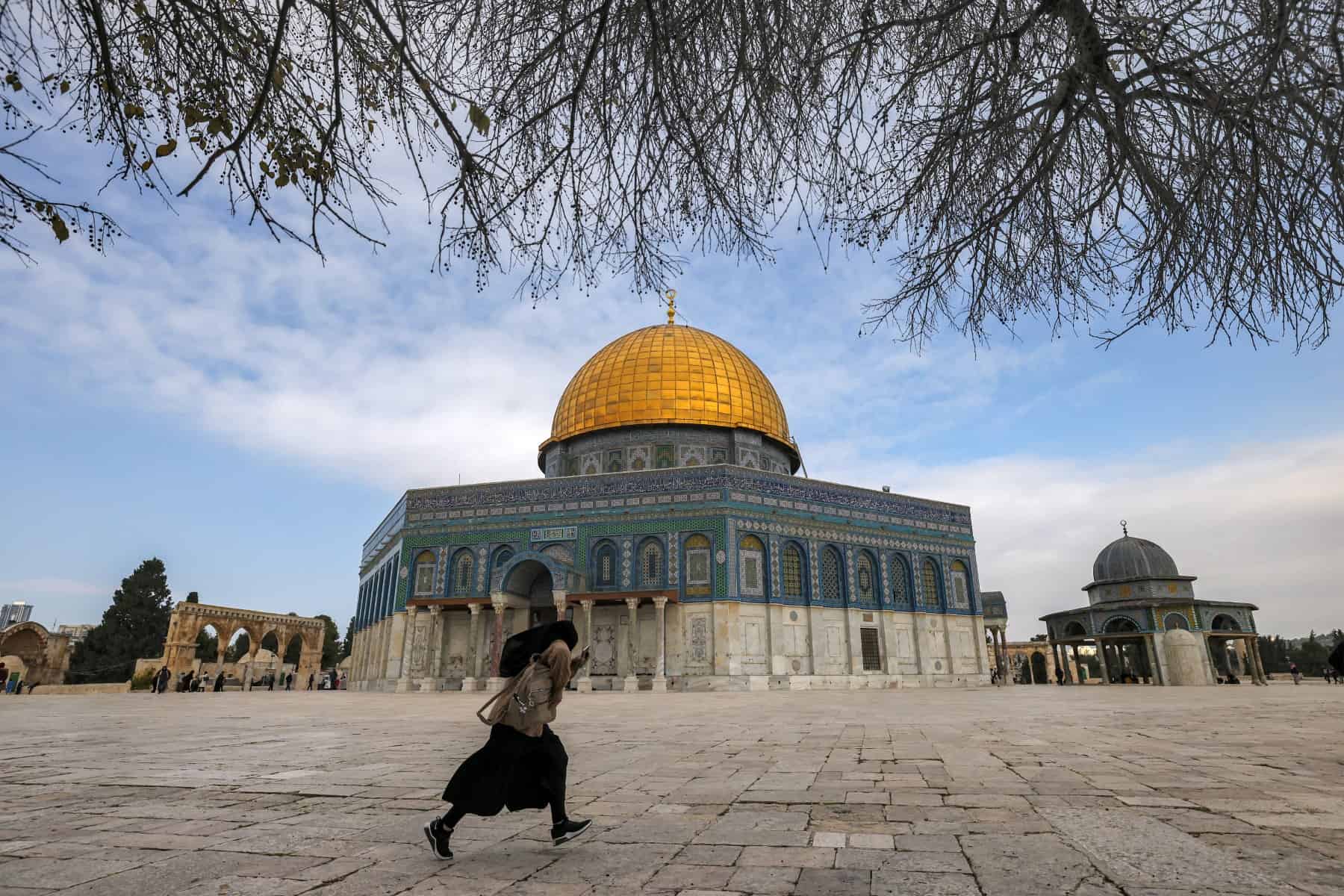Jerusalem: Saudi Arabia and the United Arab Emirates were among nations to condemn a visit Tuesday by Israel’s extreme-right new national security minister to Jerusalem’s Al-Aqsa mosque compound.
The move by firebrand Itamar Ben-Gvir has enraged Palestinians, while the United States warned of steps which may harm the status quo.
“Our government will not surrender to the threats of Hamas,” Ben-Gvir vowed in a statement published by his spokesman, after the Palestinian militant group warned such a step was a “red line”.
Ben-Gvir’s visit comes days after he took office as national security minister, with powers over the police, giving his decision to enter the highly sensitive site considerable weight.
Al-Aqsa mosque is the third-holiest place in Islam and the most sacred site to Jews, who refer to the compound as the Temple Mount.
Under a historic status quo, non-Muslims can visit the site at specific times but are not allowed to pray there.
But in recent years a growing number of Jews, mostly Israeli nationalists, have covertly prayed on the compound, a development decried by Palestinians.
The UAE, which launched diplomatic ties with Israel in 2020, “strongly condemned the storming of Al-Aqsa Mosque courtyard by an Israeli minister”, in a foreign ministry statement.
The US ambassador to Israel, Tom Nides, said Washington “has made it clear to the Israeli government it opposes any steps that could harm the status quo in the holy sites”.
Lying within Israeli-annexed east Jerusalem, the compound is administered by Jordan’s Waqf Islamic affairs council, with Israeli forces operating there and controlling access.
After his visit, Ben-Gvir vowed to “maintain the freedom of movement for Muslims and Christians, but Jews will also go up to the mount, and those who make threats must be dealt with — with an iron hand”.
‘Serious threat’
The politician has lobbied to allow Jewish prayer there, a move opposed by mainstream rabbinical authorities.
Israel’s chief Sephardi rabbi, Yitzhak Yosef, wrote to Ben-Gvir on Tuesday.
“What will people say when they see a minister, an observant Jew, who flouts the position of the rabbinate,” he said in a letter.
Ben-Gvir was accompanied by units of the Israeli security forces, Waqf guards told AFP, while a drone hovered above the holy site.
Jordan’s foreign ministry spokesman Sinan Majali slammed the Israeli politician for “breaking into the blessed Al-Aqsa mosque and violating its sanctity”.
Saudi Arabia, home to the holiest sites in Islam, condemned the “provocative practices” of Ben-Gvir in a foreign ministry statement.
The visit was also criticised by the Arab League and the Organization of Islamic Cooperation.
While Ben-Gvir has visited the compound numerous times since entering parliament in April 2021, his presence as a top minister is highly significant.
A controversial visit in 2000 by then opposition leader Ariel Sharon was one of the main triggers for the second Palestinian intifada, or uprising, which lasted until 2005.
The Palestinian foreign ministry called Ben-Gvir’s visit a “serious threat”.
Basem Naim, a senior Hamas official, last week warned such a step would be “a big red line and it will lead to an explosion”.
On Tuesday, Hamas spokesman Hazem Qassem deemed it a “crime” and vowed the site “will remain Palestinian, Arab, Islamic”.
‘Security and stability’ warning
Hamas rules the Gaza Strip and in May 2021 an 11-day war broke out in the territory between Palestinian militants and Israel, after violence at Al-Aqsa mosque.
Hundreds of Palestinians and dozens of Israeli police were wounded in the preceding clashes across east Jerusalem, initially sparked by restrictions on Palestinians gathering and possible evictions of residents.
During this period Ben-Gvir rallied his supporters at Israeli settler homes in east Jerusalem, which has been occupied by Israel since the 1967 Six-Day War.
The foreign ministry of Egypt — which serves as a key mediator in Gaza — warned “of the negative consequences of such actions on security and stability” in the Palestinian territories and the wider region.
For years seen as a fringe figure, Jewish Power leader Ben-Gvir entered mainstream politics with the backing of Prime Minister Benjamin Netanyahu.
Ben-Gvir has advocated for Arab-Israelis deemed disloyal to the state to be expelled and for the annexation of the occupied West Bank.
Until a few years ago he had a portrait in his living room of Baruch Goldstein, who massacred 29 Palestinian worshippers at a Hebron mosque in 1994.
He launched his ministerial career on December 29, as part of Israel’s most right-wing government in history led by Netanyahu.








